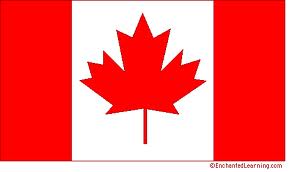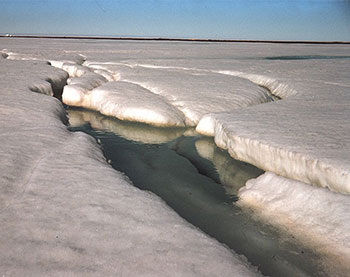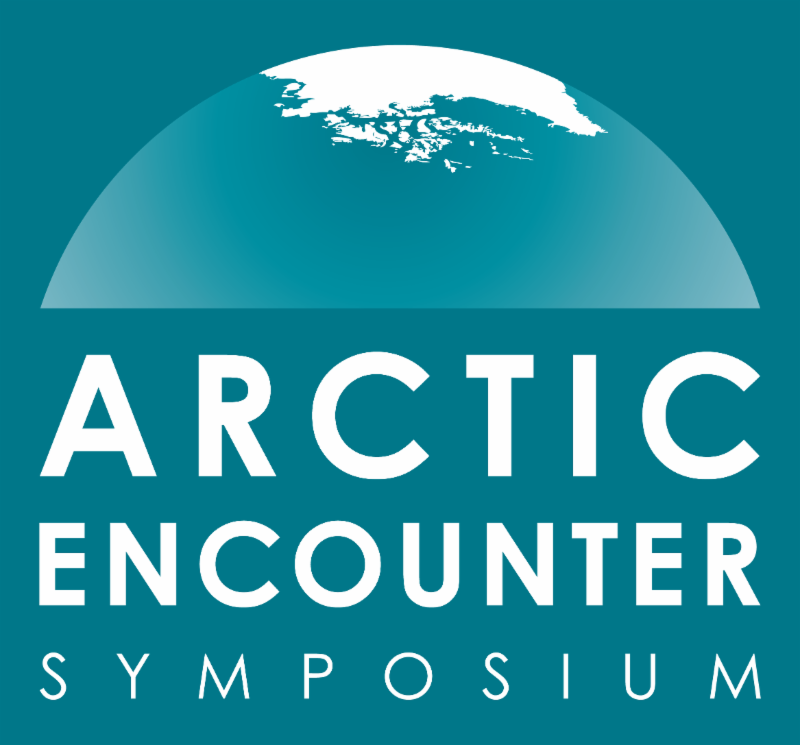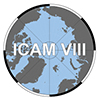|
|
|
|
|
|
|
|
No Arctic-science events are announced for today.
|
Media
IMO Needs to Organize Arctic Salvage Contingencies. A bulker grounding in northern Russia has highlighted the need for regulators to ensure there are emergency response tugs in the Arctic, explains editor Martyn Wingrove. The grounding of a bulk carrier in the Arctic this month has thrown the spotlight on how poorly prepared shipping is for emergency response in northern seas at a time when traffic in the region is climbing. Tug Technology & Business
 Canada Moves to Dilute Finnish Bid to Ban Dirty Fuels from the Arctic. Canada Moves to Dilute Finnish Bid to Ban Dirty Fuels from the Arctic. As the world maritime body prepares to consider a Canadian proposal to mitigate the risks of heavy fuel oil pollution in the Arctic, Ottawa is trying to water down a plan by Finland for an outright ban of the highly polluting fuel - used by most ships plying the rapidly warming Arctic. The International Maritime Organization (IMO), the United Nations' agency regulating maritime shipping, will discuss the issue of heavy fuel oils (HFO) in the Arctic at the upcoming 72nd session of its Marine Environment Protection Committee (MEPC) in London in early April. CBC News
This is the World's Smallest Ocean. As most of you probably know, 71% of our Earth is covered by water; this includes oceans, rivers, lakes, groundwater, and swamps. Of that water, over 90% is salt water, meaning our oceans take up the largest amount of water (which is not surprising). Science Trends
 Wind, Sea Ice Patterns Point to Climate Change in Western Arctic. Wind, Sea Ice Patterns Point to Climate Change in Western Arctic. A major shift in western Arctic wind patterns occurred throughout the winter of 2017 and the resulting changes in sea ice movement are possible indicators of a changing climate, says Kent Moore, a professor of physics at the University of Toronto Mississauga. Thanks to data collected by buoys dropped from aircraft onto the Arctic Ocean's sea ice, Moore and colleagues at the University of Washington, where he spent the year as the Fulbright Visiting Chair in Arctic Studies, were able to observe this marked, anomalous shift in Arctic wind patterns and sea ice movement during the winter of 2017. Science Daily
Feds to Drop New Habitat Rules, Ending State's Legal Challenge. The Trump administration has agreed to rewrite rules that would have made it easier for the government to designate areas as "critical habitat" for endangered species. The move is another step toward eroding the Obama administration's environmental legacy. It comes after Alaska joined other states in a lawsuit challenging habitat rules for the Fish and Wildlife Service and the National Marine Fisheries Service. Alaska Public Radio
|
|
Future Events
Preparing for a Northwest Passage; The Role of New England in Navigating the New Arctic, March 25-27, 2018 (Durham, New Hampshire USA). This workshop pairs two of NSF's 10 Big Ideas: "Navigating the New Arctic" and "Growing Convergence Research at NSF." During this event, participants will assess economic, environmental, and social impacts of Arctic change on New England and establish convergence research initiatives to prepare for, adapt to, and capitalize on these effects. Shipping routes through an ice-free Northwest Passage in combination with modifications to ocean circulation and regional climate patterns linked to Arctic ice melt will affect trade, fisheries, tourism, coastal ecology, air and water quality, animal migration, and demographics not only in the Arctic but also in lower latitude coastal regions such as New England. With profound changes on the horizon, this is a critical opportunity for New England to prepare for uncertain yet inevitable economic and environmental impacts of Arctic change. Workshop website: here.
48th International Arctic Workshop 2018, April 5-6, 2018 (Boulder, Colorado USA). Hosted by the Institute of Arctic and Alpine Research (INSTAAR), University of Colorado The 2018 Arctic Workshop welcomes a community that includes all career stages - from student to distinguished world-class expert. The Arctic Workshop is open to all interested in high latitude environments, including those of the past, present, and future. Talks and posters on all aspects of Arctic science, social science, and engineering are invited, including Arctic and Antarctic climate, anthropology, atmospheric chemistry, engineering and infrastructure, environmental geochemistry, paleoenvironment, sociology, archeology, geomorphology, hydrology, glaciology, soils, ecology, oceanography, Quaternary history and more. If you are studying the Arctic, this is the conference for you.
Polar Day, April 6, 2018 (Davis, CA USA). This Polar Forum is supported by the John Muir Institute at University California Davis. Chair of the US Arctic Research Commission Fran Ulmer will discuss "The Rapidly Changing Arctic: Why Does it Matter?" Dr. Steven C. Amstrup will discuss "Current and Future Challenges Facing Polar Bears." There will be a screening of the documentary "Between Earth and Sky." David C. Weindorf will host a panel discussion with the film's producer.
 5th Annual Arctic Encounter Symposium (AES), April 19-20, 2018 (Seattle, WA, USA) 5th Annual Arctic Encounter Symposium (AES), April 19-20, 2018 (Seattle, WA, USA) The Arctic Encounter, the largest annual Arctic policy conference in the U.S., will convene policymakers, industry leaders, scientists, Arctic artists and musical performers, and other stakeholders to debate and discuss emerging Arctic challenges and opportunities including policy, innovation, security, and development. The mission of AES is to raise awareness, engage challenges, and develop solutions for the future of the Arctic region and the people who live there. The 5th annual AES will take place in downtown Seattle at the Bell Harbor International Conference Center on Pier 66.
2018 North by North Festival, April 23-29, 2018 (Anchorage, Alaska USA). The North by North Festival captures the spirit of Alaska and the Arctic - to address our challenges and opportunities with Northern innovation and resilience, to build on a rich history and to ensure a future full of promise. The Festival is for the North, and organized by Northerners, with goals of sustainability, livability and growth. The Festival brings innovators from across Alaska, the nation and other Arctic regions to collaborate and address local and circumpolar challenges. Through knowledge, governance, business, design, film, music, food, literature and art, we celebrate the North.
Council on Earth Cryology, May 15-16, 2018 (Moscow, Russian Federation). Scientific council on Earth cryology of Russian Academy of Sciences together with Department of Geocryology of Faculty of Geology of Lomonosov Moscow State University, Institute of the Earth Cryosphere, the Tyumen Scientific Senter, Melnikov Permafrost Institute (Yakutsk) of the Siberian Branch of the Russian Academy of Science holds on May 15 - 16, 2018 an enlarged meeting with participation of the Russian and foreign scientists, engineers and experts: "Current problems of geocryology." The meeting of Scientific council on Earth Cryology of RAS has the status of the International meeting. The publication of materials in the collection of reports is planned. Submissions (Submission Form), offers on cooperation, support of a conference and papers (Sample of Paper) to e-mail: cryoconf18@gmail.com
The Effects of Climate Change on the World's Oceans, June 4-8, 2018 (Washington, DC USA). The 4th International Symposium will bring together experts from around the world to better understand climate impacts on ocean ecosystems - and how to respond. The event is hosted by a variety of groups including International Council for the Exploration of the Sea (ICES), N. Pacific Marine Science Organization (PICES), Intergovernmental Oceanographic Commission of UNESCO (IOC), and Food and Agriculture Organization of the United Nations (FAO).
 POLAR 2018, June 15-27, 2018 (Davos, Switzerland). POLAR2018 is a joint event from the Scientific Committee on Antarctic Research (SCAR) and the International Arctic Science Committee (IASC). The SCAR meetings, the ASSW and the Open Science Conference will be hosted by the Swiss Federal Institute for Forest, Snow and Landscape Research WSL under the patronage of the Swiss Committee on Polar and High Altitude Research. The WSL Institute for Snow and Avalanche Research SLF is organizing POLAR2018. POLAR 2018, June 15-27, 2018 (Davos, Switzerland). POLAR2018 is a joint event from the Scientific Committee on Antarctic Research (SCAR) and the International Arctic Science Committee (IASC). The SCAR meetings, the ASSW and the Open Science Conference will be hosted by the Swiss Federal Institute for Forest, Snow and Landscape Research WSL under the patronage of the Swiss Committee on Polar and High Altitude Research. The WSL Institute for Snow and Avalanche Research SLF is organizing POLAR2018.
5th European Conference on Permafrost, June 23-July 1, 2018 (Chamonix-Mont Blanc, France). In the continuation of the International and Regional conferences convened by the International Permafrost Association, the 5th European Conference on Permafrost (EUCOP 2018) will be held in Chamonix-Mont Blanc, France, 23rd June - 1st July 2018. The conference aims at covering all relevant aspects of permafrost research, engineering and outreach on a global and regional level. Conference website: here.
Arctic Observing Summit 2018, June 24-26, 2018 (Davos, Switzerland). The Arctic Observing Summit (AOS) is a high-level biennial summit that provides a platform to address urgent and broadly recognized needs of Arctic observing across all components of the Arctic system. AOS 2018 will be held in Davos, Switzerland ( June 24-26) and will focus on pressing issues in the implementation and support of sustained observations that can be addressed through a business-case lens. To that end, short submissions are requested that address any and all aspects of the overarching theme and sub-themes. Additional information can be found here.
17th International Congress of Circumpolar Health (ICCH17), August 12-15, 2018 (Copenhagen, Denmark). The ICCH congresses are held every third year in different locations in the circumpolar area and represent the largest scientific meetings worldwide on circumpolar health. The ICCH congresses serve as the primary source of information exchange and scholarly communication in issues relating to circumpolar health. More than 750 participants generally register and participate in each Congress, and more than 400 scientific papers or posters are usually presented.
UArctic Congress 2018, September 3-7, 2018 (Oulu and Helsinki, Finland).
The UArctic Congress 2018 will bring together key UArctic meetings and a science conference into one single gathering, including business meetings of the Council of UArctic, Rectors' Forum, Student Forum, and Thematic Networks & UArctic Institutes Leadership Team. The Congress is an integral part of the Finland's Arctic Council chairmanship program, and open to the public. The event will highlight the themes and priorities of the Finnish chairmanship, including the goals of the United Nations' 2030 Agenda for Sustainable Development, and the Paris Agreement under the UN Framework Convention on Climate Change.
The second Arctic Biodiversity Congress is hosted by the Conservation of Arctic Flora and Fauna (CAFF), the biodiversity working group of the Arctic Council, and the Ministry of the Environment, Finland. The second Arctic Biodiversity Congress will build on the success of the first Congress, held in 2014 in Trondheim, Norway, and will bring together scientists, policymakers government officials, Indigenous representatives, Traditional Knowledge holders, industry, non-governmental organizations, and others to promote the conservation and sustainable use of Arctic biodiversity.
|
|

  
4350 N. Fairfax Drive, Suite 510
Arlington, VA 22203, USA
External links in this publication, and on the USARC's World Wide Web site ( www.arctic.gov) do not constitute endorsement by the US Arctic Research Commission of external Web sites or the information, products or services contained therein. For other than authorized activities, the USARC does not exercise any editorial control over the information you may find at these locations. These links are provided consistent with the stated purpose of this newsletter and the USARC Web site.
|
|
|
|
|
|
|
|
|
 Canada Moves to Dilute Finnish Bid to Ban Dirty Fuels from the Arctic. As the world maritime body prepares to consider a Canadian proposal to mitigate the risks of heavy fuel oil pollution in the Arctic, Ottawa is trying to water down a plan by Finland for an outright ban of the highly polluting fuel - used by most ships plying the rapidly warming Arctic. The International Maritime Organization (IMO), the United Nations' agency regulating maritime shipping, will discuss the issue of heavy fuel oils (HFO) in the Arctic at the upcoming 72nd session of its Marine Environment Protection Committee (MEPC) in London in early April. CBC News
Canada Moves to Dilute Finnish Bid to Ban Dirty Fuels from the Arctic. As the world maritime body prepares to consider a Canadian proposal to mitigate the risks of heavy fuel oil pollution in the Arctic, Ottawa is trying to water down a plan by Finland for an outright ban of the highly polluting fuel - used by most ships plying the rapidly warming Arctic. The International Maritime Organization (IMO), the United Nations' agency regulating maritime shipping, will discuss the issue of heavy fuel oils (HFO) in the Arctic at the upcoming 72nd session of its Marine Environment Protection Committee (MEPC) in London in early April. CBC News Wind, Sea Ice Patterns Point to Climate Change in Western Arctic. A major shift in western Arctic wind patterns occurred throughout the winter of 2017 and the resulting changes in sea ice movement are possible indicators of a changing climate, says Kent Moore, a professor of physics at the University of Toronto Mississauga. Thanks to data collected by buoys dropped from aircraft onto the Arctic Ocean's sea ice, Moore and colleagues at the University of Washington, where he spent the year as the Fulbright Visiting Chair in Arctic Studies, were able to observe this marked, anomalous shift in Arctic wind patterns and sea ice movement during the winter of 2017. Science Daily
Wind, Sea Ice Patterns Point to Climate Change in Western Arctic. A major shift in western Arctic wind patterns occurred throughout the winter of 2017 and the resulting changes in sea ice movement are possible indicators of a changing climate, says Kent Moore, a professor of physics at the University of Toronto Mississauga. Thanks to data collected by buoys dropped from aircraft onto the Arctic Ocean's sea ice, Moore and colleagues at the University of Washington, where he spent the year as the Fulbright Visiting Chair in Arctic Studies, were able to observe this marked, anomalous shift in Arctic wind patterns and sea ice movement during the winter of 2017. Science Daily



